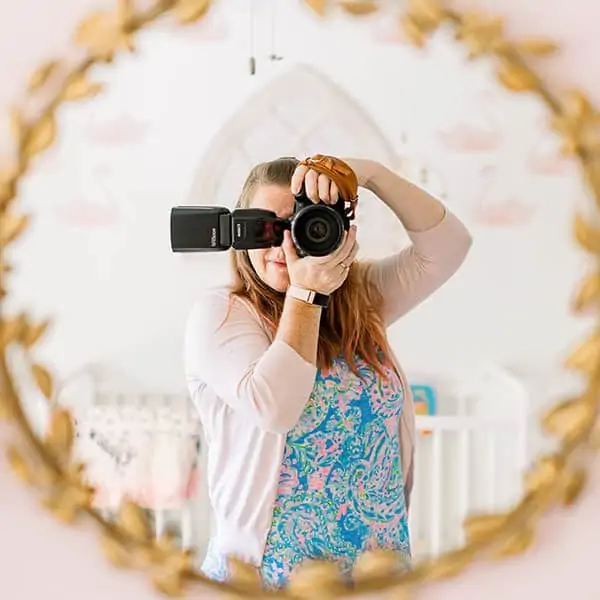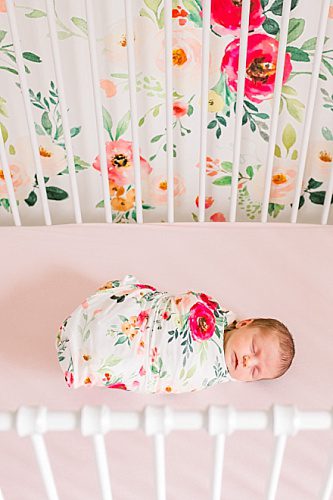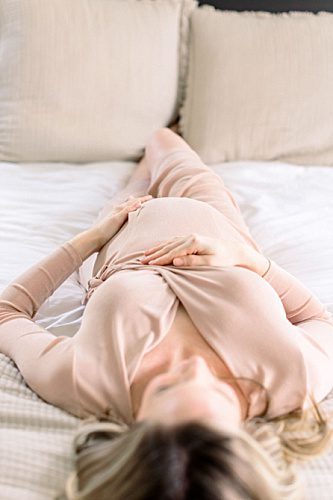
So this blog post is directed more to photographers, but I think it can be helpful for brides when choosing a photographer to ensure they are a legitimate business that will be around long after your wedding! I get a lot of emails from new photographers that ask about setting up their business. I applaud those that want to set a great foundation for the long run and keep things legal! Starting a business is more then just getting a website and Facebook page and declaring yourself a professional. That might sound harsh but would you hire a plumber because he has 500 fans but no insurance in case he floods your house? I hope not 😉 We are going to talk about a lot of things that go beyond a website and it might scare you to think about all this stuff when you just like to take pictures but if you want to be in business you have to understand the realities of it. These are things that I have learned over the last couple years and they aren’t a big secret but I think a lot more people might think twice about going into business if they knew all the behind the scenes work required. Those that know the work required and are prepared to do it have a much higher chance of succeeding in my opinion, although sheer dedication can get you pretty far too! I have learned about all of these things from google searches and photography forums.
Here is my disclaimer that I’m not a lawyer and you should research the things I cover to see how they apply to your business. I will also include links to people who are smarter then I am and I encourage you to check out what they have to say! So let’s talk business!
1. Company Name- When you are dreaming up what your new logo might look like make sure you do your research on the name you are choosing. Nothing worse then having to rebrand after years as XYZ to ABC. So save yourself some hassle and start with a simple google search for your chosen name to make sure it is not taken or even trademarked, also check out domain naming sites to see what is available. I chose to cover this first because you will need a business name to follow the rest of the steps. You may also need to file a Doing Business As (DBA) with your city/county to open a checking account with your business name. Check with your city/county for their rules and regulations.
2. Business License- If you are establishing a business you need to check with your city/county and state to see what their requirements are for getting a business license. There are fees involved with this and don’t be surprised come tax time if you get a tax bill from your city/county for your business and business equipment. Welcome to being a real business, it’s not always fun.
3. Business Entity- There are several different entities you can form when you start your business, the common ones include Sole Proprietor, Limited Liability Corporation, Corporation, Limited Partnership, etc. You will need to research with your state and perhaps contact a lawyer or tax adviser to determine which bests suits your business. There are also fees involved in registering your business with the state and having a unique name is necessary because your state keeps a database of all the businesses registered in it. I suggest choosing an entity that will protect your personal assets separate from your business assets, you really don’t want to lose your house because a client sued you for bad photos and was able to come after you for everything you own. Is that a worst case scenario? Probably, but better to be safe then sorry. Update: I just met with a CPA yesterday and found out by using my SSN instead of a FEIN I have severed the break between personal and business that my LLC provides. So yep you guessed it today I’m getting a FEIN number from the IRS to fix that!!
4. Insurance- As a wedding photographer some venues require that I carry liability insurance, this is something that can be the difference in getting the job or not. I also have equipment insurance that covers everything in my bag of value. If my whole bag gets stolen and I have to replace everything I will be very happy to get that check from the insurance company! This situation is not uncommon either, I’ve heard of thieves targeting high end venues and even bags being stolen out of cars. Equipment insurance is great just in case you drop that new 70-200 2.8L lens because is can get darn heavy! Make sure you check with your insurance provider to ensure your equipment is covered on location, this might require a special rider for your policy. Also if you do any shooting or client meetings at your home you may need to check into your homeowners policy to see if you are covered or if you will need additional insurance for that. A client slipping on your front walk because it snowed the night before could put you out of business before you even start.
5. Professional Memberships- These can be to the local Chamber of Commerce, Better Business Bureau (BBB) or as I have the Professional Photographers of America (PPA). I recommend every photographer join PPA and sign up for their Indemnification Trust. They provide legal advice and possible counsel in case you are sued for negligence in situations such as digital data loss, missing images and client dissatisfaction. PPA also provides classes and training throughout the year, as a professional photographer you should be continuing your education just like you would in a traditional career. Early in my business I was able to take a fantastic class through PPA called the Business of Art and it really helped me set the foundation of my business.
6. Sales Tax- If you are charging for your services then you need to know if you should be collecting sales tax. States have different rules when it comes to photography and some require you collect tax on your session fee and products while others just require it on physical goods. It is up to you to know what your state requires and to follow their directions accordingly. Check with your tax adviser and your State sales tax office and make sure you get the information in writing with a name attached. If you are audited years down the line you don’t want to find out you were told the wrong information over the phone by someone they’ve never heard of. I know even calling the Virginia Sales Tax office and asking about photography will get you different answers so I choose to collect tax on goods and services. Every month I have to report my earnings to the tax office and turn over the tax money I have collected, even if I don’t have any sales I need to report $0 income to avoid paying a late fee. Nothing worse then paying a late fee when you didn’t even make any money that month! Update: The Virginia Department of Taxation and Revenue requires you to collect sales tax for photography as they consider that the service is “labor” creating a final product. You are welcome to contact them directly if you have any further questions.
Title 23 VAC 10-210-2050 states that the tax is applicable “to the total charge to the customer for a photograph, slide, etc., including but not limited to, charges for labor, photocomposition, setting design, photography time, and any other components of the charge regardless of whether such components are separately stated.”
And
The object of photography is to provide a customer with a photographic image, the sale of which is taxable whether delivered as tangible personal property or as a digital image.
7. Income Taxes- Uncle Sam gets a portion of your earnings, no if and’s or buts about it that I’ve found. Talk to your tax adviser to figure out how much you need to set aside for state and federal income taxes. I recommend setting aside your tax money from each job so you aren’t scrambling to come up with the cash come April 15th. Update: As a full-time photographer that is actually making some money from it (Wahoo!!) I have to pay self-employment taxes quarterly now. I tried to figure out how to do it on my own and when my brain exploded at the calculations but I figured out that my accounting software will track it for me! I use QuickBooks Self Employed.
8. Business Plan- Your local Small Business Association (SBA) might offer free classes on establishing a business plan so you should definitely check them out. You can also google business plans or even check out templates through Microsoft Word. It forces you to sit down and think about what you want to do with your business. This plan will also change over the years as you change. It needs to be flexible but structured to keep you on track. As far as photography specific business plans I have used Laura Novak’s Strategy Avenue and found it to be really great with walking me through planning my business. I’ll admit the first time I did my plan all I knew was that I wanted to be a photographer full time and I had no idea how to go about it or what kind of clients I would target or how to market myself. I’m about to update my plan since it is the beginning of the year and I can tell you it will be a much tighter plan because I know what I want and how I’m going to get there. So even if you have no idea you should review the questions and be thinking about them in your business and as time goes by you might just start figuring out the answers! Alicia Caine is another photographer helping photographers tackle business plans and she is releasing Happy Place this week. You can check out the first chapter on her Facebook page. I have not used it yet since it hasn’t been released yet but I’m a huge fan of her pricing guide I will cover next so I expect this will be just as awesome! A great business plan will help you if you need to get a loan or capital for your business. An investor wants to make sure you are serious about your business before they give you any of their money.
9. Pricing- So now we have established that running a business isn’t cheap, the above items run me at least $1000 a year not including the taxes. So even if I make $0 dollars I have to shell out over $1000 in fees just to be in business. There are many other fees and expenses that I haven’t even scratched the surface on when it comes to running your business. How are you going to pay for all of that? This is where pricing comes into play. Looking at your local competition might give you an idea of what the market is like but you need to set your prices based off your business expenses and do the homework to figure out your cost of good sold. PPA has a great benchmark survey to give you an idea where to start when knowing how to become profitable. They also have great SMS classes to help you get your business running and setup for a solid future. When it comes to really helping you with pricing in easy to understand language I highly recommend Alicia Caine’s Easy as Pie pricing guide. Even if you are in the portfolio building stage this is perfect to help you with the jump to charging for your work. I so wish I had her guide when I first started. You are going to learn that you will need to charge more then you think when you are a legitimate business if you plan to stay in business. If you are a wedding photographer your best pricing resource hands down is from Stacy Reeves and is aptly titled “The Single Greatest Guide to Wedding Photography Pricing That Ever Was and Ever Will Be.” Reading her guide and pricing out my wedding collections scared me to death but I know that I am on the path to staying in business for the long run now. Another great resource for pricing is from Tofurious and covers Creative Pricing and Packaging.
10. Money Myth of Photography- After going through just the tip of the iceberg on running a business I hope you realize that photography is not a way to make easy money. A better blogger then I has broken it down for us and I think every professional photographer that reads this thinks “Amen sister!”. Do Professional Photographers Really Make Money? written by Heather Lilly is a real wake-up call as to what being a photographer with your own business is really about. She has covered things that even made me go uh-oh I need to start doing that, like saving for retirement!!
I may not have covered the above topics in the most professional way but it is a brain dump of things that I’ve learned over the years. I hope that is is helpful to those that really want to succeed with a photography business and can get started on the right foot. If you really love photography then I just saved you over two years of figuring out some basics!
Melissa Arlena is an award winning lifestyle newborn photographer in Charlottesville and Richmond, Virginia who has earned her Master Photographer Certification from NAPCP in maternity, newborn and family photography. Her natural and simple work has been featured in magazines and online blogs worldwide. She has been named Best Maternity and Newborn Photographer in Richmond and Charlottesville, VA in 2024.





Hi Melissa,
This is a great topic. You covered much. If you don’t mind, I’d like to post this on my photography group’s discussion page.
Well done
Sure Pam go ahead! Thanks!
Great post Melissa!!! There are so many things to check off with your own business:)
Well done with lots of good info! Being a good photographer does not make you a good business person. You must work hard on both (from personal experience). You should have written this in 1976 so I wouldn’t have made all the mistakes at least once. (:-0)